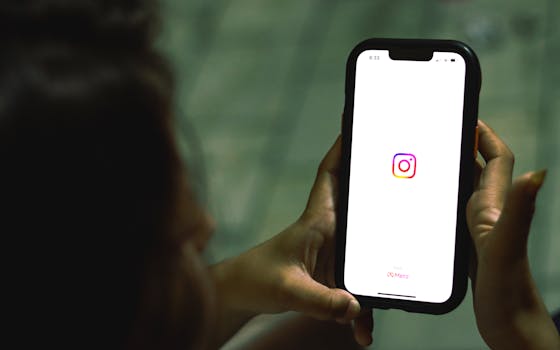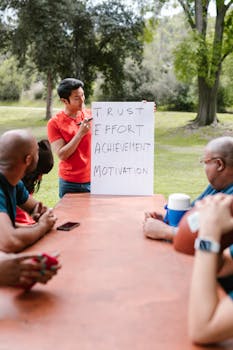Anúncios
Social media has profoundly transformed numerous industries, and acting is no exception. The way actors connect with their audience has evolved dramatically, allowing for deeper interactions and immediate responses. This shift in engagement offers unique opportunities as well as challenges for performers.
In today’s digital landscape, actors utilize social media platforms to showcase their work, build personal brands, and interact with fans. As a result, performances are no longer confined to traditional venues. Instead, they reach audiences worldwide with a simple click.
Additionally, social media serves as a platform for casting directors, producers, and fans to connect. This has opened a new chapter in the casting and promotional processes, influencing how talent is discovered and marketed. Consequently, the impact of these channels on acting cannot be understated.
The Evolution of Actor-Audience Relationships
Social media has changed the dynamic between actors and their audiences. Previously, barriers existed, limiting direct interaction. Now, those barriers have largely disappeared.
Actors can engage with fans through various platforms like Instagram, Twitter, and TikTok. This availability fosters a sense of community and humanizes the performers. They share behind-the-scenes content, making their audience feel included in their journeys.
Anúncios
Such interactions strengthen audience loyalty and can even influence the success of projects. When fans feel more connected, they are likely to promote shows and films organically. This word-of-mouth can be invaluable.
Moreover, the transparency offered by social media allows actors to express their authenticity. They can share struggles, triumphs, and personal insights, paving the way for deeper connections with viewers.
Audiences also feel empowered to voice their opinions, thus shaping the narrative around actors and productions. This two-way communication creates a dynamic that goes beyond the traditional spectator experience.
Anúncios
Brand Building and Marketing
Social media serves as a powerful tool for branding. Actors can curate their public images and highlight their distinct personalities through carefully managed posts. This control enhances their appeal.
Platforms like Instagram and Facebook enable actors to showcase their work, be it film, theater, or television. They effectively create a portfolio that is accessible to casting directors and producers, broadening their professional horizons.
Furthermore, marketing strategies now heavily rely on social media engagement. Successful campaigns often involve interaction with fans, making them feel like a part of the promotional effort. This engagement is crucial for creating buzz for upcoming projects.
Additionally, collaborations with influencers and brands allow actors to reach new audiences. Such partnerships can amplify their visibility, attracting diverse groups of followers who may not be familiar with their work.
The ability to collect data on these interactions enables meaningful insights into audience preferences, allowing actors and their teams to tailor marketing approaches accordingly. This strategic use of information can maximize their reach.
Opportunities for Emerging Talent
Social media has democratized the acting industry. Emerging talent now has platforms to showcase their skills without the need for traditional gatekeepers. This shift has created a more level playing field.
Actors can share audition tapes or performances online, attracting the attention of casting agents and directors. Viral clips can lead to significant opportunities, often warranting immediate attention from the industry.
Moreover, platforms like TikTok have spawned a new generation of actors who gain fame organically. These platforms reward creativity and originality, offering visibility to those who may not have had traditional training.
Networking has also evolved thanks to social media. Actors can connect with industry professionals from anywhere, expanding their influence and opportunities for collaboration across geographical boundaries.
In this way, social media not only provides exposure but also promotes diversity. The varied backgrounds and stories of emerging talent contribute to a broader representation within the industry.
The Influence on Casting and Recruitment
Another significant aspect of social media’s impact is its role in casting and recruitment processes. Casting directors often use these platforms to search for fresh faces, evaluating potential talent based on their online presence.
Actors with substantial follower counts, or those who engage with fans effectively, tend to attract attention. This visibility can sometimes outweigh traditional qualifications such as training or experience.
Furthermore, social media can serve as a portfolio. Casting professionals often review an actor’s profile to gauge their public persona and engagement styles before auditions or castings. This adds a new layer to their evaluation.
Social media also bridges gaps in communication between casting calls and applicants, allowing actors to stay updated on opportunities. Posting auditions online can streamline the application process and ensure wider reach.
Challenges emerge as well; however, public scrutiny can sometimes overshadow talent, leading to moments of backlash or pressure. These dynamics demand a balance between visibility and personal authenticity.
The Role of Social Commentary
Beyond personal branding, social media platforms serve as channels for social commentary. Many actors utilize their platforms to advocate for various causes, raising awareness and driving conversations.
This engagement helps humanize actors in the eyes of the audience and emphasizes their values. As they share their beliefs and experiences, they foster connections with socially conscious fans.
Moreover, their narratives contribute to broader societal conversations, influencing public opinion on essential topics. Audiences often align themselves with actors who share similar ideals and passions.
Such advocacy can benefit both actors and their projects. Engaging with important issues often garners attention, inviting audiences to rally behind not just the actors but the stories they aim to tell.
However, it also requires actors to be aware of the potential repercussions. Public opinions can shift, and standing for a cause may produce backlash from opposing viewpoints. Navigating these waters requires careful consideration.
Challenges and Pressures of Social Media
Despite many advantages, the world of social media poses challenges for actors. The constant online presence can lead to burnout and fatigue, impacting mental health and overall well-being. This is a crucial conversation within the industry.
Moreover, the pressure to maintain a perfect image can create unrealistic expectations. This constant scrutiny can often overshadow an actor’s craft and talent, leading to individuals focusing more on appearances than performance.
Additionally, the risk of online harassment is real. Actors may face negative comments or even threats, which can affect their emotional stability and performance. These factors necessitate a supportive environment to navigate such issues.
Furthermore, social media algorithms prioritize sensational content, often shifting attention away from talent. Actors must continuously adapt to changing trends, sometimes leading to inauthentic content designed merely to attract attention.
Thus, finding a balance between engagement and personal authenticity is crucial. Developing coping strategies to handle the pressures of social media can create healthier interactions both online and offline.
Conclusion
In conclusion, social media has irrevocably transformed the acting landscape. It has created opportunities for personal branding, expanded access for emerging talent, and altered casting processes. This evolution continues to shape how actors interact with their audiences.
While the benefits are significant, challenges related to mental health and public scrutiny must also be addressed. Understanding this dual nature of social media will help actors navigate their careers more effectively.
As the digital world keeps evolving, the relationship between actors and social media will likely deepen. This ongoing interplay will open new horizons for creativity and connection in the performing arts.



